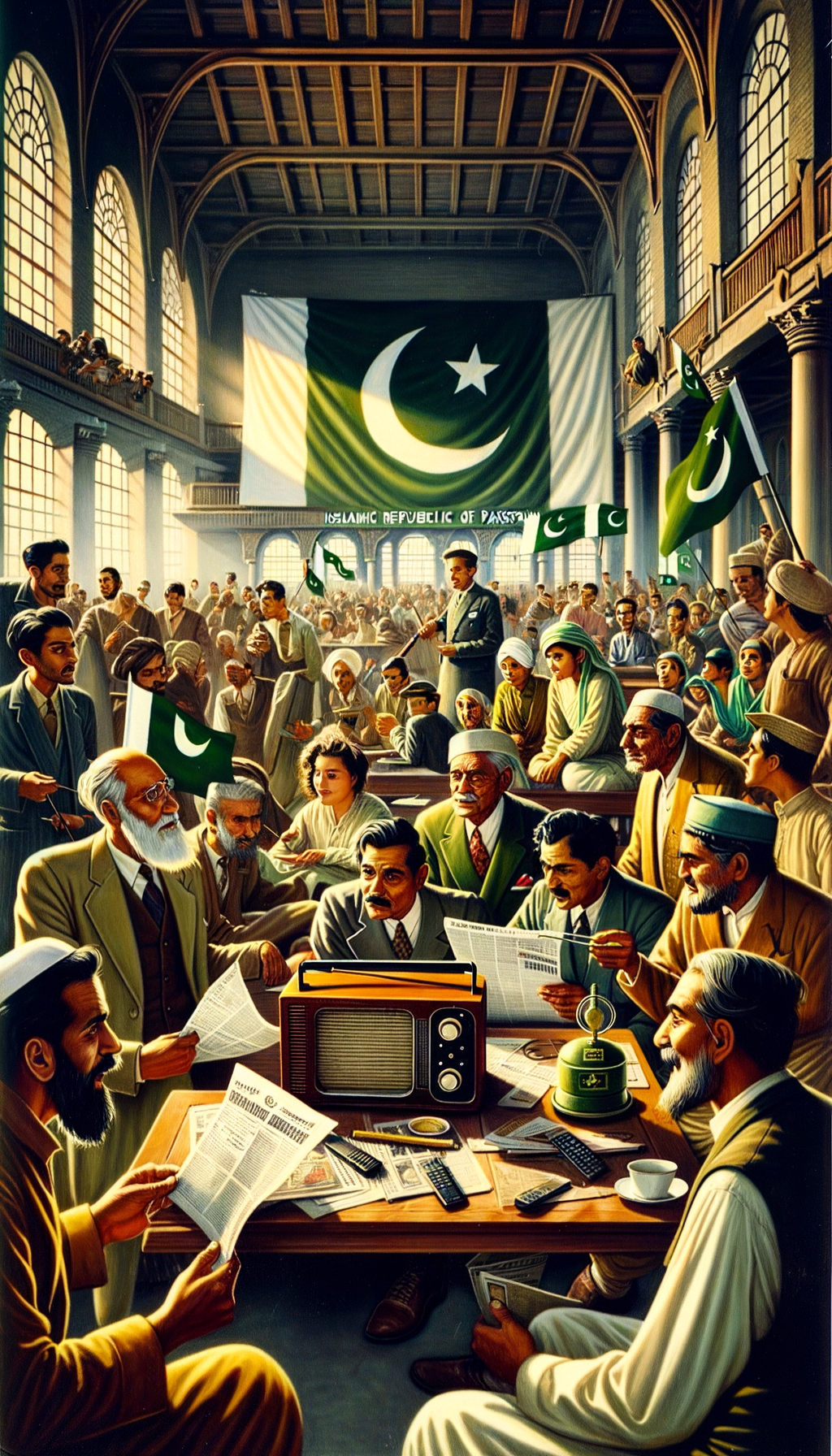Pakistan – The Dawn of a New Era: Pakistan's First Constitution, 1956
TLDR;
- Event: On March 23, 1956, Pakistan adopted its first constitution, becoming the first country to officially be named an ‘Islamic Republic’, coinciding with the anniversary of the Lahore Resolution of 1940.
- Significance: The constitution aimed to unify the nation by establishing it as an Islamic Republic while maintaining democratic principles, reflecting the country’s cultural and religious aspirations.
- Challenges: The adoption process was marked by intense debates over the integration of Islamic law with modern governance, but a consensus was eventually reached.
- Outcome: The constitution was short-lived, being abrogated on October 7, 1958, leading to martial law and political instability, yet it remains a significant milestone in Pakistan’s history.
–
Story
In the heart of South Asia, a nation stood on the brink of transformation. The air was thick with anticipation on March 23, 1956, as Pakistan prepared to redefine its identity. This date was chosen to coincide with the anniversary of the Lahore Resolution of 1940, a significant event in the history of Pakistan’s creation. The world watched as this young nation, carved out of the subcontinent less than a decade earlier, took a bold step into the future by adopting its first constitution, becoming the first country to adopt the title of ‘Islamic Republic’ in its official name.

The journey to this moment had been fraught with challenges. Born from the partition of British India in 1947, Pakistan was a nation in search of its soul. The early years were marked by political instability and the struggle to balance diverse cultural and religious identities. The need for a unifying framework was urgent.
The constitution of 1956 was more than just a legal document; it was a declaration of intent. It established Pakistan as an Islamic Republic, reflecting the aspirations of its people to align governance with Islamic principles while maintaining democratic ideals. This was a significant departure from its previous status as a Dominion under the British Crown.
However, the adoption of the constitution was not without controversy. The debates were intense, as leaders grappled with the complexities of integrating Islamic law with modern governance. The turning point came when consensus was finally reached, and the constitution was ratified, setting the stage for a new chapter in Pakistan’s history.
Yet, the promise of stability was short-lived. The constitution was abrogated on October 7, 1958, slightly more than two years after its adoption, when President Iskander Mirza declared martial law. This led to a cycle of political upheaval that would challenge the nation for decades. Despite this, March 23, 1956, remains a landmark in Pakistan’s journey—a testament to its enduring quest for identity and governance.
–
| Would a different approach to the constitution have changed Pakistan’s political trajectory? |